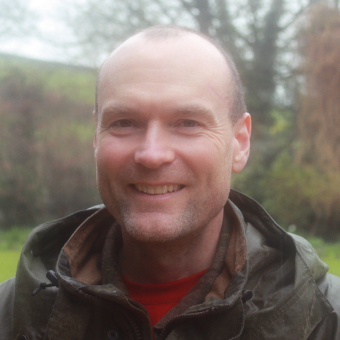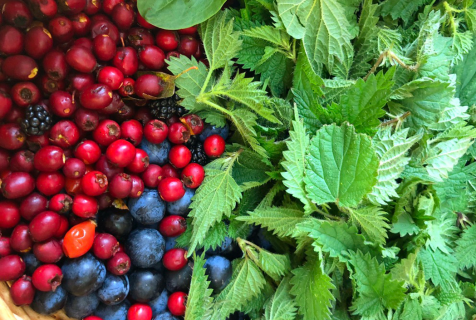
Adrian Boots
Adrian is a Landscape Ecologist, writer and forager living on the Mendip Hills Somerset. He grew up in the New Forest where his love of the countryside and natural history began.
At University he graduated with a BSc in Geography and Environmental Management and an MSc in Research, and subsequently became a University lecturer and researcher in landscape ecology, conservation and biogeography. He is an elected Fellow of the Royal Geographical Society.
Whilst conducting field studies for his thesis on Hedgerow connectivity and history of the landscape, Adrian began to notice edible goodies in the hedges, fields and woods. Over the years has accumulated a huge reference library and studied with some of the most respected wild food and ecology experts including Ray Mears, Mors Kochanski, Oliver Rackham, Max Hooper and John Wright of River Cottage fame. Adrian advised John in the research for his most recent book on Hedgerows.
Adrian has also worked in industry with farmers and landowners to help them gain the most environmental benefit from their land. He continues to research and write, and has published academic papers, written a book on countryside walks, and writes a regular monthly article on wild food and foraging for the popular regional magazine The Mendip Times. He also designs nature trails for schools, charities and leisure businesses and runs professional development courses for staff and volunteers of organisations such as Wildlife Trusts and Natural England, as well as courses for the public and corporate events.
Recently Adrian worked with the late, great Sir Terry Wogan on the BBC2 program ‘Terry and Mason’s Great Food Trip’ in the City of Wells where he cooked Mendip Wallfish aka snails to you and I, a traditional Mendip recipe. He re-created the dish for the 2016 Food Magazine Awards event at Yeo Valley Organic HQ.
Adrian is passionate about wild food and using the fruits of the ‘quiet hunt’ to create delicious dishes. Rather than just teaching a list of wild foods, he enjoys helping people understand the connections between habitat and species so that they develop a more holistic understanding of wild food within the context of the landscape, and our fundamental relationship with food and the natural world.
